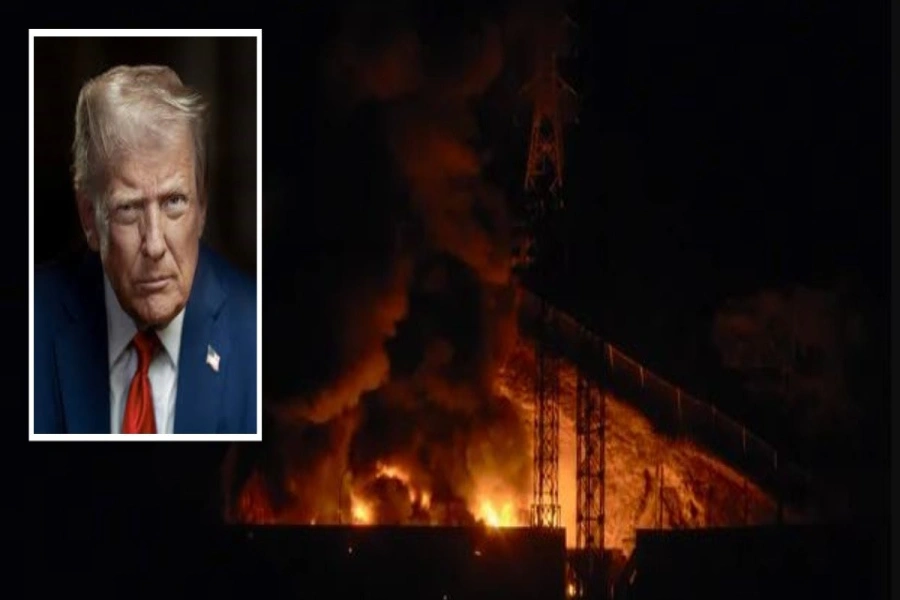CARACAS, August 6: Venezuelan ruling party chief Diosdado Cabello says Sunday that there was a “terrorist” attack at a military base controlled by troops loyal to the government and several people were arrested.
Cabello reported via Twitter that troops acted quickly to control the situation in the early morning at the Paramacay base in the central city of Venezuela.
The announcement came after a small group of men dressed in military fatigues, some armed with assault rifles, released a video declaring themselves in rebellion in Carabobo state, where Valencia is located.
In the video a man identifying himself as Capt. Juan Caguaripano said that any unit refusing to go along with its call for rebellion would be declared a military target.
The South American has for months been in the throes of a political crisis with protests that have left more than 100 dead, nearly 2,000 wounded and over 500 detained.
Backed by military, Venezuela’s Maduro hits back at rival

On Saturday prominent opposition leader Leopoldo Lopez was returned home to serve his sentence under house arrest, days after being hauled back to prison in the middle of the night in a move that drew international condemnation.
The activist’s wife Lilian Tintori said in a message on Twitter that she and her husband remained committed to achieving “peace and freedom for Venezuela.”
Lopez was released from prison July 8 and placed under house arrest after serving three years of a 13-year sentence on charges of inciting violence at opposition rallies. Many human rights groups considered him a political prisoner.
But he was taken back into custody last Tuesday along with former Caracas Mayor Antonio Ledezma in what many believed was a renewed crackdown on the opposition following the election of delegates to a new, all-powerful constitutional assembly charged with overhauling the nation’s charter.
That assembly voted unanimously on Saturday to remove Venezuela’s chief prosecutor, a longtime government loyalist who broke with President Nicolas Maduro in April. Cries of “traitor” and “justice” erupted during the vote to oust Luisa Ortega from her post.
Delegates said they were acting in response to a ruling by the government-stacked Supreme Court, which banned Ortega from leaving the country and froze her bank accounts while it weighs criminal charges against her for alleged irregularities.
Ortega refused to recognize the decision and vowed to continue defending the rights of Venezuelans from Maduro’s “coup” against the constitution “with my last breath.”
“This is just a tiny example of what’s coming for everyone that dares to oppose this totalitarian form of government,” Ortega said in the statement she signed as chief prosecutor. “If they’re doing this to the chief prosecutor, imagine the helpless state all Venezuelans live in.”
She alleged that authorities were desperate to get their hands on dossiers containing information on dirty dealings by high-level officials, including sensitive details about millions of dollars in bribes paid by Brazilian construction giant Odebrecht.
Assembly delegates later swore in as her replacement Ombudsman Tarek William Saab, who was recently sanctioned by the Trump administration for failing to protect protesters from abuses in his role as the nation’s top human rights official.
The constitutional assembly was seated despite strong criticism from the United States, other countries and the Venezuelan opposition, which fear that it will be a tool for imposing dictatorship. Supporters say it will pacify a country rocked by violent protests.
Its installation is virtually certain to intensify a political crisis that has brought four months of protests in which at least 120 people have died and hundreds more have been jailed.
Maduro also wants the assembly to strip opposition lawmakers of their constitutional immunity from prosecution, saying their constant conspiring to oust him shouldn’t be protected.
While members of congress say they will only be removed by force, the opposition is struggling to regain its footing in the face of the government’s strong-arm tactics and the re-emergence of old, internal divisions.



































